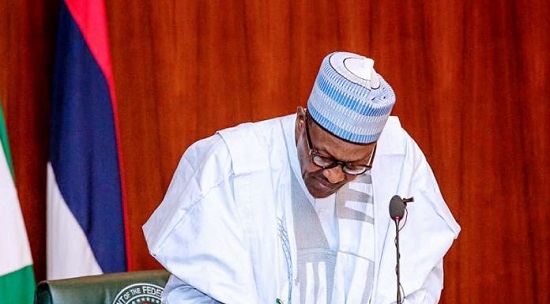This post has already been read 1859 times!
Nigeria under President Muhammadu Buhari is currently on a borrowing spree. Something drastic appears necessary to arrest this undesirable trend. Who will save us from this menace? Since the current administration came into power in May 2015, its mantra, apart from its characteristic blame game of past administrations, seems to be that of “borrow, borrow and borrow” until there is no more money to borrow anywhere. The recurring news of government borrowing so much today, so much the next day and so on has left many Nigerians worried as to whether the government is actually on a rescue mission or has other unwritten agenda. This appears so when the interest of the next generation is not being considered. People have wondered whether the authorities in Abuja are concerned about the repayment of these loans.
Indeed, the current state of a growing public debt profile in the country is scary. Official data indicate that total debt grew from N12.118 trillion in May 2015, to N12.6 trillion in December 2015, N17.36 trillion in 2016, N21.725 trillion in 2017, N24.387 trillion in 2018 and N27.401 trillion in 2019. The figures skyrocketed to frightening levels in 2020 with the active connivance of the Ninth National Assembly under the joint session chairmanship of Senator Ahmed Lawan. In the early years of the Buhari administration, figures from the Debt Management Office indicate that Nigeria’s total debt increased by about 90% between December 2015 and March 2018, from about N12.6 trillion to about N22.71 trillion and that total domestic and external debt stock of the federal and 36 state governments and the Federal Capital Territory, stood at N22.38 trillion or $73.21 billion in June 30, 2018. It can be recalled that this National Assembly approved a whooping N10.08 trillion or $28 billion loan for the Buhari Administration within a period of one year. With the latest public borrowings of N8.7 trillion and N5.51 trillion accompanying the approvals of the 2020 federal budget, the overall public position has risen to about N41.6 trillion. This is from N12.118 trillion in May 2015 when the Buhari administration took office. This implies that this administration has more than tripled the total public debt in five years. These recent loans have come from various sources, $3.4 billion loan from the International Monetary Fund, $2.5 billion loan from the World Bank, $1 billion loan from the African Development Bank, N850 billion domestic capital market loans and a host of others. In line with this borrowing spree, the Federal Government had earlier in the year concluded plan to borrow N2 trillion from the current N10 trillion pension funds to finance the development of infrastructure, following a decision taken at a recent meeting of the National Economic Council (NEC) under the chairmanship of the Vice President, Yemi Osinbajo. An articulation of the recent borrowing plans of this administration sheds more light on the downward trend the economy is taking with these questionable moves.
The role of the National Assembly in this matter has actually compounded the problem. The current federal legislature, which has been tagged by many as a “rubber stamp” of the executive has been playing true to this description. It appears that it evaluates these loan proposals using other considerations apart from economic viability and national equity. It also appears that it hardly carries out thorough or critical analyses of the loan proposals before approvals are granted. This has been the case since this Ninth Assembly was inaugurated in June 2019. It has actually surpassed the Eighth National Assembly and those before it in easily passing borrowing plans without adequate scrutiny as well as the feasibility of a seamless repayment plan. This National Assembly doesn’t appear competent to question any borrowing or other agenda of Buhari at all. Where then are the expected benefits derivable from the checks and balances of the presidential system of government, which is designed to strengthen governance in the pursuit of the common good. Ironically, the Senate President, Ahmed Lawan has consistently insisted that the nation faces no debt problem. This is worrisome.
This is not equitable. Is all this about “making hay while the sun shines” before power changes hand in 2023? Or is the fear of an inevitable restructuring of the country a factor in this regard? The government is better advised that the debt to GDP ratio does not guarantee the debt repayment. It is surprising that the government is not even cutting the cost of government in the spirit of the trying times. Instead it has resorted to more and more borrowings as the way out of its challenges. The Buhari government is touching off a time bomb for future administrations and thus making the country difficult to govern in future. Maybe the government is hoping for a debt cancellation, as president Buhari recently canvassed for African countries. Is that the kind of change the Buhari administration has brought to Nigeria? Is this part of the promised next level? Whoever is advising this government to take this unsustainable path should have a rethink. Nigeria needs stability not the building of a pack of cards that would easily crumble at the slightest turbulence. These borrowings should stop, at least in the interim. The county can do better without them. Nigeria is in a terrible race to the bottom with the current unbridled thirst for borrowing.



